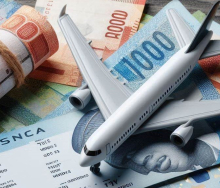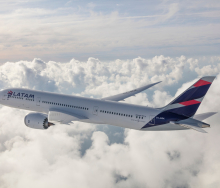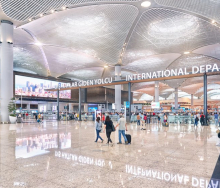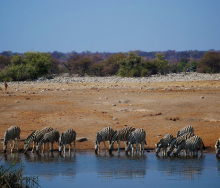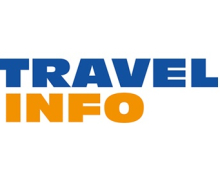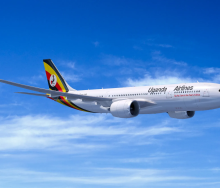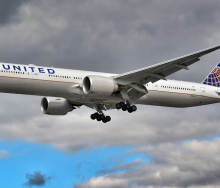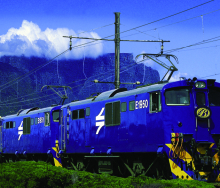Several new independent travel agent offerings have launched in SA post-COVID-19, hoping to capitalise on the flood of travel agents entering the market due to COVID-related job cuts. But some established ITC groups warn against the introduction of the 100% ITC model, describing it as unsustainable.
“For an ITC model to work there must be a win-win-win relationship in place for the customer, the consortium and the ITC. In the 100% ITC model – where the consortium is only paid a small transactional fee – the consortium (who does not win financially) never invests sufficient resources to assist the ITCs in establishing a successful business and in ensuring that steps are taken to protect the clients’ funds,” says ceo of eTravel, Garth Wolff. “The recent demise of one such model is proof of this and should be a warning to businesses setting up similar models at this time.
“There have been so many stories of ITCs facing fraud charges and in most of these cases I do not believe that the consultant started out with the intention to steal. Without experience managing finances it is so easy to start rolling cash and for the situation to quickly escalate out of control. eTravel’s processes, and our policy of managing client funds on behalf of our ITCs, ensures that the ITC is kept on the straight and narrow and that the client’s funds are always protected,” he adds.
eTravel currently pays its ITCs up to 85% commission, retaining 15% of its ITCs’ earnings to assist with various services, including invoicing; accounting and tax services; reporting; business development; marketing and collection of client funds.
Gm of Travel Counsellors South Africa, Mladen Lukic, agrees. He says many of the 100% ITC offerings that are cropping up have been established as a soft landing for retrenched consultants where the employer is trying to exonerate itself from the responsibility of paying staff, while also attempting to retain the consultant’s client base within its fold.
“There is far more to running your own business than simply consulting from home, and many of the ITC models that are being established at this time do not offer consultants the training and back office support that is needed to run a successful businesses in the long term,” says Mladen.
Club Travel’s franchise director, Jo Fraser, told Travel News that Club Travel’s franchise department had been in operation since 2004 and had always given 100% of its ITCs’ earnings back to them.
“We currently have over 400 franchise members and there has never been greater demand for this offering. In fact, we will be launching an additional ITC offering this month together with a whole range of new technology options. The model is sustainable because of the override earnings that our franchise partners’ volumes bring to the group. The longevity of this model is proof of its sustainability,” says Jo.
“The dreadful reality of the situation that we are currently facing is that employers no longer have money to pay their staff. In my opinion, it is the companies that are holding on to their staff and not paying them that are acting irresponsibly, rather than those that have moved forward with retrenchments in a transparent manner. At a time when there are no jobs to be found, bringing valued consultants with existing customer bases into our established ITC fold gives them hope for the future and an opportunity to work for themselves whilst incurring very little in the way of start-up costs,” says Jo.
“FCTG has met all its legal obligations to our staff and those that we were forced to retrench have been compensated with severance packages and offered the opportunity to join our ITC programmes over and above this. We see this as a win-win situation for all involved as we retain the consultants’ skills, and the customer and our ITCs continue to benefit from our globally negotiated fares and technology offerings,” says FCTG md MEA, Andrew Stark.
“To be sustainable, a 100% ITC offering should not be the sole offering of your business and in our case it forms part of a wide range of leisure, corporate and other independent offerings. This new offering has allowed us to give a home to many consultants at this time and will also offer FCTG the opportunity to inexpensively acquire additional volumes when the industry rebounds,” adds Andrew.
Garth concedes this point and says eTravel’s 100% ITC model – called Just the Ticket – has helped to drive volumes for the business over the years but that it was only sustainable in combination with the group’s full ITC offering, which generates 95% of eTravel’s revenue.
Ceo of newly launched Bold Travel and Technology, Michelle Bergset, says Bold’s combination of its 100% ITC model, its commission-sharing ITC model, its corporate offering and its technology offering make for a sustainable business model.
Ceo of XL Travel, Marco Ciocchetti, says it is important to remember that ITCs are entrepreneurs who want to be in control of their own businesses. As such, XL’s new ITC offering includes a suite of administrative functions that the ITC can pick and choose from, ranging from a basic 100% ITC ticketing model to an offering that assists ITCs with invoicing and other functions. Marco says as long as a consortium ensures that its menu of services include a sustainable profit margin on each item, even the 100% model will be sustainable.


